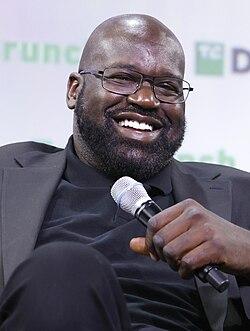In a candid reflection on one of the most surprising upsets in NBA history, Shaquille O’Neal opened up about the Los Angeles Lakers’ loss to the Detroit Pistons in the 2004 NBA Finals. Speaking to Basketball Network, the four-time NBA champion acknowledged that the team’s lack of cohesion played a crucial role in their defeat. Despite entering the series as heavy favorites, the Lakers fell short against a disciplined Pistons squad, a result that continues to resonate nearly two decades later. Shaq’s insights shed new light on the internal challenges that undermined a star-studded roster and altered the course of Lakers history.
Shaq Candidly Addresses Team Dynamics and Chemistry Issues in 2004 Finals
Shaquille O’Neal opened up about the internal struggles that plagued the 2004 Lakers during their clash with the Detroit Pistons. Reflecting on the team’s chemistry, Shaq admitted that despite having immense talent on paper, the squad lacked true unity and cohesion. “We weren’t really together,” he stated, underscoring how fractured relationships and conflicting egos played a crucial role in their unexpected defeat. According to Shaq, this dissonance made it difficult to execute a consistent game plan against a disciplined and well-organized Pistons unit.
The Lakers’ roster at the time featured several stars, but the off-court dynamics proved to be a major hurdle. Tensions among key players meant that trust and communication were often compromised. Shaq emphasized that the Pistons exploited these weaknesses mercilessly, showcasing a level of teamwork and resilience that the Lakers could not match. Below is a brief comparison of key factors that defined both teams in the 2004 Finals:
| Factor | Lakers | Pistons |
|---|---|---|
| Team Chemistry | Fragile and tense | Strong and cohesive |
| Defense | Inconsistent | Relentless and disciplined |
| Star Power | High individual talent | Balanced, role-focused |
| Leadership | Divided | Unified |
- Key takeaway: Talent alone can’t win championships without trust and unity.
- Shaq’s reflection: The team’s disconnect was as much a tactical downfall as it was emotional.
- Pistons’ strength: Teamwork trumped superstar firepower.
Analyzing Key Moments Where Lakers Cohesion Faltered Against the Pistons
Throughout the 2004 NBA Finals, the Lakers’ offensive timing and defensive synchronization visibly broke down in crucial stretches. Shaquille O’Neal, in reflecting on these moments, pinpointed how miscommunications and individualistic plays disrupted the flow the team was known for. Despite the star power on the roster, these lapses allowed the Pistons to exploit mismatches and force turnovers, ultimately swinging momentum repeatedly in Detroit’s favor.
Key instances where team cohesion faltered included:
- Second quarter of Game 2: Poor closeouts and rotations led to open 3-pointers for the Pistons.
- Fourth quarter of Game 3: Isolation plays stalled Lakers’ offensive rhythm, resulting in multiple missed opportunities.
- Game 5 transition defense: Slow switches created easy fast-break points for Detroit, shifting the series dynamic.
| Game | Moment | Impact |
|---|---|---|
| 2 | Defensive rotations | Allowed Pistons 3-point surge |
| 3 | Isolation plays | Stalled offense, turnovers |
| 5 | Transition defense | Fast-break points conceded |
Lessons from the 2004 Defeat Shaq Recommends Building Stronger Team Unity for Future Success
Shaquille O’Neal has openly acknowledged that the Lakers’ shortcomings in the 2004 NBA Finals went beyond just talent on the court. Reflecting on the loss against the Detroit Pistons, Shaq emphasized that a major factor was the lack of true cohesion within the team. “We weren’t really together,” he remarked, pointing to the need for better communication and mutual understanding as key elements for any championship-worthy squad. He advocates that future teams must prioritize building stronger bonds-both on and off the court-to foster resilience and collective focus under pressure.
According to Shaq, the path forward entails embracing core principles that unify players beyond individual brilliance. To underline this, he outlined a few critical actions he believes teams should implement:
- Open and honest communication that allows players to address conflicts early and work through differing opinions constructively.
- Shared accountability where every member understands their role and responsibility toward the team’s goals.
- Regular team-building activities fostering trust and camaraderie off the hardwood.
- Leadership that inspires inclusivity ensuring all players feel valued and motivated.
| Element | Impact on Team Unity |
|---|---|
| Communication | Prevents misunderstandings; aligns goals |
| Accountability | Boosts trust; strengthens cohesion |
| Team Building | |
| Team Building | Fosters trust; enhances camaraderie |
| Leadership | Encourages inclusivity; motivates players |
If you want me to help with anything else related to this content, such as summarizing it, creating a social media post, or something else, just let me know!
Final Thoughts
As Shaquille O’Neal candidly reflects on the Lakers’ 2004 NBA Finals defeat to the Detroit Pistons, his admission that “we weren’t really together” offers a revealing glimpse into the internal struggles that derailed a team loaded with talent. The loss marked a pivotal moment in Lakers history, underscoring how chemistry and cohesion can be just as critical as skill on the court. Shaq’s insights not only add context to that memorable series but also serve as a reminder of the complexities behind championship pursuits in professional basketball.














